#pashto language
Text

Comparison of Eastern Iranian Languages
14 notes
·
View notes
Text


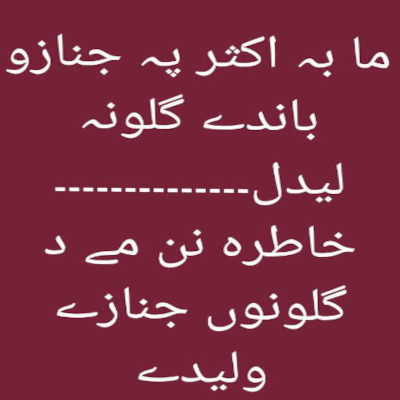

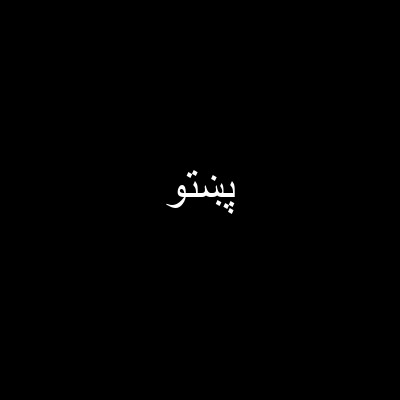
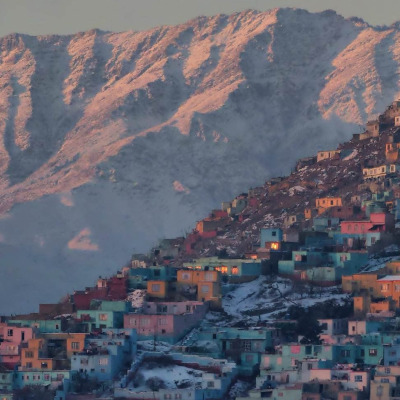


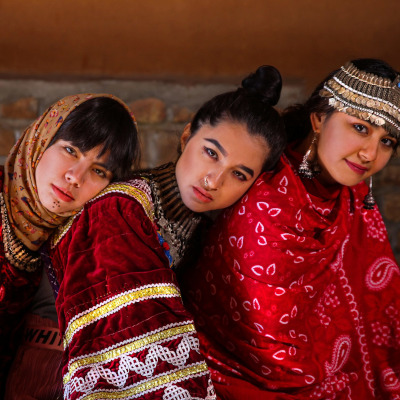
Aesthetic of the languages on earth : Pashto
Pashto is an Iranian language spoken by around 44 million people over Afghanistan and Pakistan. It is an official language in Afghanistan and the Khyber Pakhtunkhwa region of Pakistan. It is also a recognized minority language in the Balochistan region of Pakistan.
#pashto#aesthetic#languages#language#moodboard#geography#asia#afghanistan#pakistan#west asia#indoeuropean#iranian
4 notes
·
View notes
Text
ramadan kareem to everyone but especially to my (former, sadly) work bestie who fully replied to my ramadan text in pashto as if she just. expected me to understand that. queen move <3
#and to my shame I didn't even know immediately if it was Pashto or Farsi rip#not that I speak either? Girl lmao#time to go down some language rabbit holes
5 notes
·
View notes
Text
Resource List for Learning Pashto
Hello! Do you want to learn Pashto but don't know where to start? Then I've got the perfect resource list for you and you can find its link below! Let me know if you have any suggestions to improve it. Here is what the resource list contains;
"Handmade" resources on certain grammar concepts for easy understanding.
Resources on learning the script.
Websites to practice reading the script.
Documents to enhance your vocabulary.
Notes on Colloquial.
Music playlists
List of podcasts/audiobooks And a compiled + organized list of websites you can use to get hold of grammar!
#langauge learning#language#language resources#discord server#langblr#desiblr#studyblr#south asia#south asians#culture#desi#pakistan#pakistani#pakistan culture#pakistan history#pashto#pashto literature#khyber pakhtunkhwa#pathan#pashtun
66 notes
·
View notes
Text
reading urdu is fun until you see a word you don’t know and sit there for 10 minutes trial-and-erroring what sounds are supposed to come after each letter
#because what the fuck is باورچی خانے i have never heard that in my life 😭 had to ask my dad#arabic 🤝 urdu 🤝 farsi 🤝 pashto -> being the best languages but also unintelligible at times#m
3 notes
·
View notes
Text
I want to learn Pashto so bad. Tell me some basic phrases pls.
2 notes
·
View notes
Note
7 13 17 for ao?
7. favorite animal? why?
this is the one thing I can never decide on honestly. i've cycled through all of the animals associated with monk skills and stances and keep changing my mind but I think the two biggest ones are the coeurl and phoenix (opo-opo is pretty up there too).
13. what languages do they speak? how fluently?
so I don't really know how languages are distributed exactly in Eorzea but here's what I've had in mind:
Ao's native language is commonly spoken in the more rural regions of Gyr Abania (real world equivalent would be Pashto) and the dialect of it specific to the little group of villages he's from. He exclusively uses this language to speak with his brother. He also speaks a bit of the language mostly used in the city-state of Ala Mhigo (real world equivalent Dari), and while not fully fluent can get around with it well enough. He also used to sign a little, but I think he's fallen mostly out of practice with it + it wasn't a sign language that was often seen in Ul'dah so very few people understood it.
He didn't learn a word of Eorzean (or whatever they speak in limsa/gridania/ul'dah is called) until he fled to Ul'dah with his brother at around 10-12 years old, and now he's fluent but is very slow to read and write in that language. He speaks with a bit of an accent.
Other than that he's good at quickly picking up just enough of a language to get around, like asking for directions or saying hello/thank you/goodbye, but I feel like that's inherent if you're traveling to foreign nations and surrounded by people who only speak that language.
17. how did they spend their summers/free time as a child?
in his home village in Gyr Abania, he was very social and liked playing with other kids. He spent the vast majority of his time out and running around, while his older brother was usually inside reading or working. His village was very close to where the C tribe lived and their communities often interacted. his best friend was a little miqo'te girl one year younger than him named C'aila
In Ul'dah, Ao's brother was lucky enough to land a job that would pay enough for a little apartment for them pretty early on - but while he was at work, Ao decided to spend his time trying to find little tasks to do for a bit of gil to live off of (and resorted to theft a few times). He met a lalafell named Saro, only a bit younger than him, who often followed him around when they became friends. They spent a lot of time in the markets, and Ao learned cooking from some of the vendors they'd befriended.
As soon as he was old enough, Ao joined the pugilist's guild mostly to have something to do, and possibly be sent out on tasks where he could earn some money. He was still just a kid so they didn't really let him do anything dangerous, at any rate. Also, as a teen and shortly after he came out and started transitioning, Ao re-united with C'aila in Ul'dah.
#thank u for the ask :)#i liked the language question i think about this kind of thing a lot. i unfortunately dont speak much dari myself and not any pashto but#im often around people who do
3 notes
·
View notes
Text
In 2020, Uma Mirkhail got a firsthand demonstration of how damaging a bad translation can be.
A crisis translator specializing in Afghan languages, Mirkhail was working with a Pashto-speaking refugee who had fled Afghanistan. A U.S. court had denied the refugee’s asylum bid because her written application didn’t match the story told in the initial interviews.
In the interviews, the refugee had first maintained that she’d made it through one particular event alone, but the written statement seemed to reference other people with her at the time — a discrepancy large enough for a judge to reject her asylum claim.
After Mirkhail went over the documents, she saw what had gone wrong: An automated translation tool had swapped the “I” pronouns in the woman’s statement to “we.”
(...) Whether automated or not, translation flubs in Pashto and Dari have become commonplace. As recently as early April, the German Embassy to Afghanistan posted a tweet in Pashto decrying the Taliban’s ban on women working. The tweet was quickly ridiculed by native speakers, with some quote tweets claiming that not a single sentence was legible.
“Kindly please don’t insult our language. Thousands [of] Pashtun are living in Germany but still they don’t hire an expert for Pashto,” posted one user, researcher Afzal Zarghoni. The German Embassy later deleted the tweet.
Seemingly trivial translation errors can sometimes lead to harmful distortions when drafting asylum applications.
#ai#tech#asylum#abolish borders#pol#obviously the issue here is far deeper than ai or machine translation but man this is so depressing
1K notes
·
View notes
Text
You probably don't know another language if you live in the United States and both you and your parents were born here unless you go out of your way to learn it. This is a problem of geography more than it is a moral failing because if you are an American, then learning another language is not immediately useful to you. This is because your options in school are as follows:
Spanish: Second most common language in America. Most people who speak it also speak English and will look at you funny if you know Spanish and will not appreciate you being able to eavesdrop on their conversations. But, it's the only non-English language with an appreciable population of native speakers that you can encounter without getting on a plane. However in all likelihood you will probably be taught by a non-native speaker who could not pass an A1 exam and you will learn no Spanish just the same as everyone else.
French: The only French speakers in North America probably don't want to talk to you ever, and if you speak non-Quebecois French at them they really won't want to. You are probably going to major in literary studies and spend the rest of your life pretending to read books no one else actually reads. You have opinions on Freud and Lacan.
German: No one in North America speaks German as their primary language. It's really only useful if you like philosophy or World War II history or want to move to Germany. You probably really like beer and will study abroad and be really annoying about it afterward. But most Germans you are likely to meet outside of Germany speak English somewhat well so you aren't really doing anything for yourself? So most people will also think you're a Wehraboo or worse unless you are Jewish.
Russian: You already speak Russian or another Slavic language at home and will insist that you do not up until the first day of class, when you and all of your classmates will spend the entire time gossiping with the professor in Russian. The few American kids will hang out in the back and probably talk about Dostoevsky and drink vodka out of their water bottles. Everyone will get an A and no one will learn anything new.
Mandarin Chinese: You (or more likely your parents) think "we'll all be speaking Chinese in twenty years" and so you want to get a head start. This attitude self-selects against people who will ever need to know Mandarin. You probably idolize Ezra Pound and use phrases like "command economy" unironically. Every single person from China who has ever met you hates your guts.
Japanese: You are a weeb. All of your classmates are weebs. Your professor may or may not be a weeb, but wants to die regardless. You'll probably give up halfway through the first semester along with the most annoying 80% of the class and switch to Spanish once you realize how hard it is to learn Japanese.
Korean or Arabic: Congratulations on your new job at [redacted]!
Pashto or Urdu or Farsi: Congratulations on your new job at [redacted], but also I really doubt you are supposed to be telling anyone that you are learning this language. Good luck on your future job search.
Navajo: Most Navajo people don't speak any Navajo and unless you live in New Mexico you will literally never meet someone who is Navajo. They don't want to talk to you anyway. I don't think many people ever even try to learn this, this is solely on this list because I've seen insane but clueless Europeans try to guilt Americans for not learning it for some incomprehensible reason.
Latin: Latin is a dead language. I'm sure you are tired of hearing about that by now, which is why I reminded you about it. Even Catholics will make fun of you now for learning this. Your parents probably want you to be a doctor, and will stop talking to you when you drop out of med school. Or maybe you're a classics student who will spend the rest of your life incorrecting historians about pissing contests no one cared about anyway. Go forge a historical demonology book or get off to a picture of Thomas Aquinas or Cicero or something, I don't know.
Ancient Greek: Oh, are you a theology student or something learning Biblical Koine? The Evangelical Christians don't care what the bible actu- ...No? You're learning Attic Greek? And you're not like, a linguistics or classics major or something, you chose to do this specifically. Hey, uh, are you doing anything later? Or right now, even?
3K notes
·
View notes
Text
these are all off the top of my head, so i apologize if a listed language is technically part of another language family/branch!
also, i wish i had more than ten options, but alas (so if you speak a language that isn’t in any of these families/branches please tell me, i’m really curious!!)
497 notes
·
View notes
Text
The Best News of Last Week - April 3, 2023
Kentucky Legalizes Medical Marijuana in Bipartisan Vote After Decade of Failed Attempts
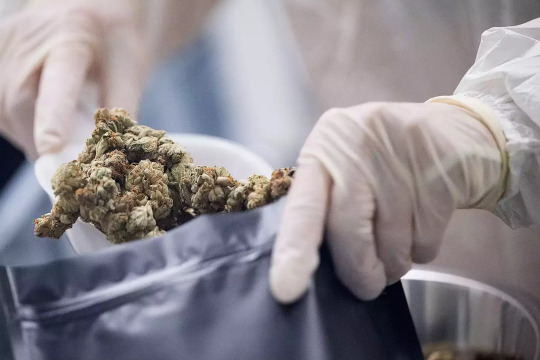
The state of Kentucky has legalized the use of medical marijuana. The bill received final passage on Thursday. Democratic Gov. Andy Beshear signed it into law Friday morning after a decade of failed attempts in the state legislature.
The news makes Kentucky at least the 38th state in the U.S. to legalize medical marijuana.
Now Indiana is surrounded by weed states. The encirclement is complete 😂
2. The Maryland House of Delegates voted Saturday to approve the Trans Health Equity Act
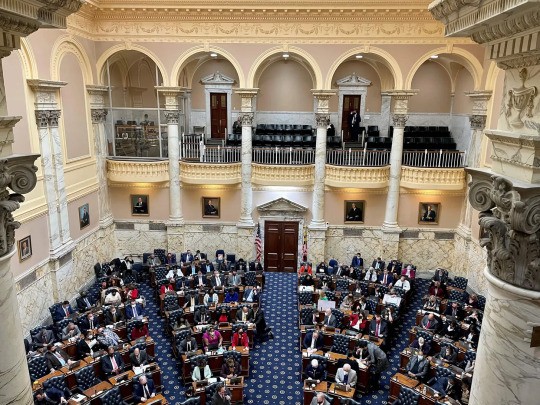
The Maryland House of Delegates voted Saturday to approve the Trans Health Equity Act — a bill that just a year ago disappeared from the chamber’s agenda ahead of a floor vote.
The bill would require Maryland Medicaid, beginning on Jan. 1, 2024, to provide coverage for additional gender-affirming treatments, which are currently disallowed in the state’s plan but commonly covered by private insurance. The expanded treatments include hormone therapy, hair alteration, voice therapy, physical alterations to the body, and fertility preservation.
3. FDA approves over-the-counter Narcan. Here's what it means

The approved nasal spray is the best-known form of naloxone. It can reverse overdoses of opioids, including street drugs such as heroin and fentanyl and prescription versions including oxycodone.
Making naloxone available more widely is seen as a key strategy to control the nationwide overdose crisis. Effects begin within two minutes when given intravenously, and within five minutes when injected into a muscle. The medicine can also be administered by spraying it into a person's nose.
4. Boston expands tuition-free community college program to all residents
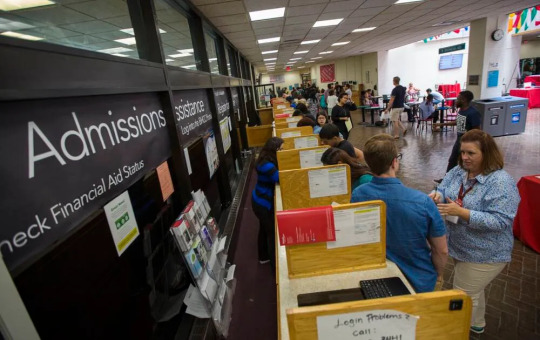
Boston has expanded its tuition-free community college program to include all city residents regardless of age, income or immigration status.
Starting this fall, any city resident will be eligible to pursue an associate’s degree or certificate at one of six partnering local institutions without paying to attend. The program also includes a $250 stipend for incidental expenses each semester for up to three years, and up to $2,500 of debt relief for students whose account balances are keeping them from re-enrolling.
5. First cheetah cubs born in India since extinction 70 years ago

India has welcomed the birth of four cheetah cubs - more than 70 years after the animals were declared officially extinct there.India's environment minister announced the good news, calling it a "momentous event".
The country has been trying to reintroduce the big cats for decades, and last year brought eight cheetahs over from Namibia as part of the plan. Another 12 cheetahs were brought to India from South Africa last month.
6. BBC education show in Afghanistan helps children banned from school
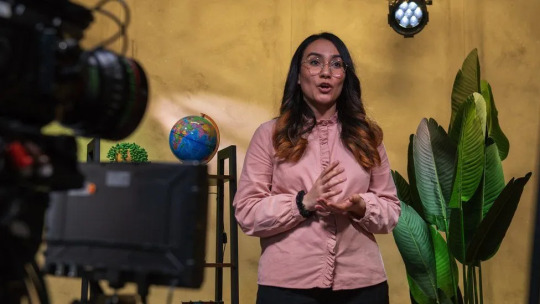
The BBC has launched a new education programme for children in Afghanistan who are banned from school.It is aimed at children aged 11 to 16, including girls whose secondary education has been stopped by the ruling Taliban.
The weekly programme is called Dars, which means lesson in Dari and Pashto, Afghanistan's official languages. It is hosted by BBC Afghan female journalists who were evacuated from Kabul during the 2021 Taliban takeover.
Each new weekly half-hour episode of Dars will air four times a day, Saturday to Friday, on the newly launched BBC News Afghanistan channel.
7. A Trans Creator Has Raised Over 1.5 Million for Trans Healthcare on TikTok Live

Transgender TikTokers are celebrating Trans Day of Visibility by raising over $1.5 million for gender-affirming care around the world.
Mercury Stardust — a DIY TikToker and trans advocate who calls herself the “Trans Handy Ma’am” — raised $120,000 last year in a livestream for the mutual aid nonprofit Point of Pride, which maintains funds for surgeries, hormone therapy, and free binders and gaffs. This year, Stardust and cohost Jory, a.k.a. AlluringSkull, set themselves a goal of raising $1 million in a planned 30-hour live stream…and then smashed that milestone less than six hours after starting the stream Thursday evening.
----
I have started a Youtube channel with wholesome videos I can find on the internet. Check it out :)
That's it for this week :)
This newsletter will always be free. If you liked this post you can support me with a small kofi donation:
Buy me a coffee ❤️
Also don’t forget to reblog
436 notes
·
View notes
Text
Please reblog for a bigger sample size!
If you have any fun fact about Afghanistan, please tell us and I'll reblog it!
Be respectful in your comments. You can criticize a government without offending its people.
52 notes
·
View notes
Text
Things to keep in mind while writing a south asian character-
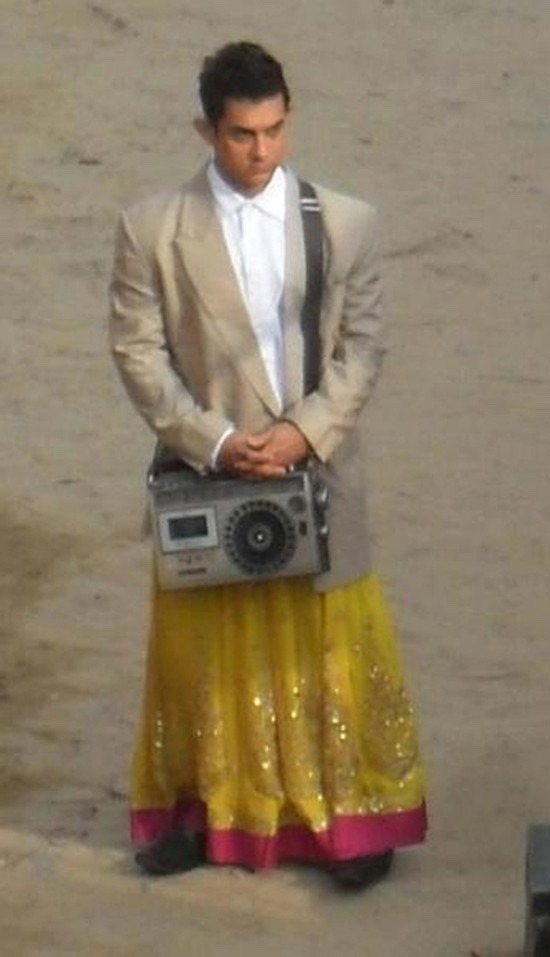
(Since I'm a mixed south-north indian and a hindu-sikh I've mainly included details about indian-hindu characters(ill try to include more abt sikh characters aswell)tho ive tried to include as much info as I can abt other south asian countries aswell !also ,if you want,feel free to add more details in :)
And please forgive my grammar in some of these places XD
1.The most common one,of course being that south asia is not all india.countries like Pakistan, Bangladesh, Nepal, Sri lanka,Bhutan etc exist to.
2.Religion tends to be a big part of many south asian people’s lives , and If not a big part of their life,than most south asians are atleast religious in one way or the other.Different religions are in majority in different regions of south asia.For example,Sri lanka is majority buddhist, mainly in the sinhalese majority while the tamil minority there is majority hindu. But it's more than valid if ur character is atheist to tho!
3.For indian characters specifically ,it's is important to know what state they are from and that state’s culture . For example,most (or almost all)tamil characters won't wear a salwar kameez.(if they do then mostly muslim tamils)(reminder;I'm talking about traditional wear. Yes a lot of Tamil's could wear a salwar kameez if they want but it is not the traditional dress of tamil nadu)
4.India itself is very diverse,so don't make every character hindu.in some regions one religion is more in the majority than the others.If you decide to make a christian-indian character ,than they usually are from south-west india and north-east india.
5.If you decide to make a hindu-indian character as maybe a marvel/dc oc or something , its best to do some research on hindu stories and history.trust me,it helps alot. If not a hindu character than do research on the folk tales of that characters region,as that can help to.
6.NOT EVERY INDIAN SPEAKS HINDI.INDIAN/HINDU ARE NOT LANGUAGES.istg please . All it takes is one search of your characters state and the states description almost always mentions the state’s official language.while some character from non Hindi speaking areas of the country, for example a malyalee person could know how to speak hindi (most probably by living somewhere like delhi),they would still talk in malayalam with family and stuff . Also a pakistani character and Hindi speaking indian can almost always communicate easily since since the most spoken language in Pakistan,Urdu is very similar to Hindi in sound(also a lot of indians,specifically muslim indian’s have urdu as their first language.)Also punjabi Pakistani's and Indian's don't have any problem in communication(the script they write punjabi in is different tho)Also since a lot of people from the north had their ancestors migrate from pakistan to india during partition regional languages of Pakistan such as sindhi,multani,balochi etc can be understood by some people of such descent living in India.And a bengali speaking indian and a Bangladeshi can communicate just as well.Nepali speaking indians and Nepali people can also communicate with each other.But when it comes to Sri Lankan tamil people their dialect is different than the one of indian tamilians,so their tamil is better understood by malyalees,but they can still communicate well enough with each other.afghan people speak pashto and dari.pashto is also understood by a small amount of ethnic pashtuns who live throughout the sub continent.People from the Maldives speak the language of dhivehi.
7.Indians overall have many festivals that all people of usually a certain community celebrate regardless of religion,caste,etc.For example ,the people in kerela celebrate onam.Infact in alot of the state’s people from a specific region have their on festivities.
8.Physical features vary from area to area of South Asia.So there is no definite“south asian“look.
9.Sikh’s don’t cut their hair , that’s why most Sikh women have long hair and most Sikh men wear turbans. Although some do, like my uncle from my mom’s side and my mom herself and etc. Though socially it's more acceptable for a sikh woman to cut her hair then a sikh man. But a load of times sikh immigrants do have to sadly cut their hair and take off their turbans in order to get jobs and all.
10.-And Hindu’s don’t eat beef.Most Sikh’s and overall all Indians tend to avoid beef to.a lot of Hindus are vegetarians due to religious beliefs. Tho mallus and some people from the north east for example usualy do eat beef(mainly the non hindus)
11.-For characters specially from south india(that to mainly kerala and tamil Nadu) the naming tradition that is used most commonly is that the child and wife use the father’s name as their last name. Though I've noticed that outside of their states atleast they tend to use their family names, but very rarely caste names.
12.- Believe it or not, in a show( I'm not sure about the name) a pakistani character had the name“shiv reddy“.pissed me of sm.yes pakistani hindus exist but if I havent already mentioned before,CERTAIN LAST NAMES BELONG TO CERTAIN AREAS. Reddy is an indian telugu hindu last name.please do your research.
13.-This applies to a good amount of north indians and just overall non south indians.south india is not one state.madras was the OLD name for Chennai, which is just one CITY in one state of south india.There are 5 states,6(and more) languages spoken. Please do not confuse those cultures.
14.-As for a good amount of non punjabis...please.punjabis are not all “balle-balle“ sikh people.please. And they're not all angry people looking for a fight either.
15.-Talking abt north india,I need to mention bollywood and how they stereotype.bombay aka the film city is in Maharashtra.yet they still stereotype Maharashtrians as poor people.gujjus are always the rich snobbish ppl.bengali ppl are sweet shy people and nepali people are Chinese. Goans are always english speaking drunkards or high attitude aunties.rajasthanis all have a heavy accent and are royalty and Uttar pradeshis-biharis are poor illiterate people. PLEASE STOP WITH THIS STEREOTYPICAL BULLSHIT ISTG. See,stereotypes exist because they are true, but only a part of the truth and over exaggerated asf.
16.-India does have a poverty issue but we are far from a third world country.most indians are middle class,that to is split in between lower middle class,middle middle class and upper middle class.and until or unless you live in a rural area casteism really isn't a problem.but remember,while casteism is illegal in indian law,it still affects people.it’s just a little less prevelant in big cities. While india is the farthest ahead in south asia atleast the rest of the countries are doing well for themselves as well.
17.-hindu culture specifically has so much lgbtqia+ stuff in it.but the fucking brit’s and Mughals ruined it. The only transgender festival of Asia is held in tamil nadu.seriously, I advise you do research of your own on it and you'll love it to!♥️
18.-Btw, hindi is a language,hindu religion. (had to add this again)Your character prolly from some place like madhya pradesh,bihar,Uttar pradesh,Delhi,uttarakhand or himachal pradesh if they are hindi speaking. Some people have the same confusion with malayalam. Malayalam is a language, malyalee’s are the people who speak it or at from kerala.
19.-talking about food.curry is a wide ass term.wdym by curry?fish curry,mutton curry or is it paneer curry?is it more creamy or not?do you eat it by itself,with rice,a paratha/parotta or all?like seriously stop with “curry“ ITS ANNOYINGGG.again food varries alot area by area.even in a specific area food varries. For example,Kerala-Tamil nadu sambar is damn spicy but sambar from karnataka and telugu states tends to be sweeter.also food from Karnataka is much milder in spice then food from Andhra,but still capable of burning the mouths of most non south asians 😍😘🥰.also,we tend to eat most of our food with hands(THE best way.)famous delicacies vary from country to country in south asia and area to area of india btw. And our food is not ’smelly’, it's FRAGRANT.
20.ok so ive in total had 2 specific segments dedicated to language and this is the third one.India,while having only 22 offical languages(again;i remind you,we do not have a national language)actually has like thousands of languages. Native people from even just one state can have different mother tongues(for example-three people who were born and raised in karnataka and have families that are native to the state could have the languages of kannada,tulu and kodava as their mother tongues).And again,dialects also differ.For example,Bombay hindi and the hindi of a person from Uttarakhand would be different, and so would Bangalore tamil and a Madurai native’s tamil.Also,let’s say a telugu person has been living in mumbai for a while,very rarely will they ever have an ’accent’ while speaking hindi or english.
21.so above i mentioned that alot of people from the north have had ancestors move in from pakistan during the partition(and vice versa for some Pakistani's).Similarly,a good amount of people from west bengal had their ancestors move in from bangladesh(and vice versa again,but unlike the north india-pakistan thing indian bong’s and bangladeshi people don’t exactly have that ’divide’).Adding this in specifically not only because of how important this is but it can give more depth to your characters if they are from any of these areas.
22.Every state has different art forms.be it dance,music or just art,every state has it different.India has 8 classical dances(bharatanatyam,kuchipudi, mohiniyattam,kathakali,oddisi,kathak, manipuri and sattriya) and has countless many more.Music also varies and so does art as i said above.
23.our culture is super feminist but fucked by the brits and mughals again. We had so many queens and princesses that fought wars and also many female warriors.In the ancient times women only wore single drape saris and didn’t cover their breasts because they were not seen as sexual,but infact as a sign of motherhood(and there forth strength).If they were covered,it was for support.
24.Most people know atleast 3+ languages and almost everyone knows 2 at the very least. Sometimes they can even understand(which can range from basic to great) some other languages. For eg.- my dad can speak english,hindi,telugu,konkani,tulu,punjabi,urdu and multani+ he can understand malayalam,kannada,sindhi and tamil well enough.
That's it(for now):) hope this can help.feel free to ask questions!+random songs from my playlist✨✨✨
(ps,check this post of mine out cause y not lol)
#indian#desi culture#writing#south asia#desi character#hinduism#desi academia#desi aesthetic#desi tag#Spotify#desi tumblr#desi shit posting#Indian culture#writing advice#character#character writing#all is not well#desi#desiblr#desi shit
324 notes
·
View notes
Text
Additional letters
This is a compilation of additional letters in the main scripts of the world.
Arabic script
The basic Arabic abjad has 28 letters: ح ج ث ت ب ا ص ش س ز ر ذ د ق ف غ ع ظ ط ض ي و ه ن م ل ك. Some languages have adapted it by including additional letters:
پ: Arabic, Balochi, Kashmiri, Khowar, Kurdish, Pashto, Persian, Punjabi, Sindhi, Urdu, Uyghur
ٻ: Saraiki, Sindhi
ڀ: Sindhi
ٺ: Sindhi
ٽ: Sindhi
ٿ: Rajasthani, Sindhi
ﭦ: Kashmiri, Punjabi, Urdu
ټ: Pashto
چ: Kashmiri, Kurdish, Pashto, Persian, Punjabi, Urdu
څ: Pashto
ځ: Pashto
ڊ: Saraiki
ډ: Pashto
ڌ: Sindhi
ڈ: Kashmiri, Punjabi, Urdu
ݙ: Saraiki
ڕ: Kurdish
ړ: Ormuri, Torwali
ژ: Kurdish, Pashto, Persian, Punjabi, Urdu, Uyghur
ڑ: Punjabi, Urdu
ږ: Pashto
ݭ: Gawri, Ormuri
ݜ: Shina
ښ: Pashto
ڜ: Moroccan Arabic
ڠ: Malay
ڥ : Algerian Arabic, Tunisian Arabic
ڤ: Kurdish, Malay
ڨ: Algerian Arabic, Tunisian Arabic
ک: Sindhi
ݢ: Malay
گ: Pashto, Kurdish, Kyrgyz, Mesopotamian Arabic, Persian, Punjabi, Urdu, Uyghur
ګ: Pashto
ڱ: Sindhi
ڳ: Saraiki, Sindhi
ڪ: Sindhi
ڬ: Malay
ڭ: Algerian Arabic, Kyrgyz, Moroccan Arabic, Uyghur
ڵ: Kurdish
لؕ : Punjabi
ݪ: Gawri, Marwari
ڽ: Malay
ڻ: Sindhi
ݨ: Punjabi, Saraiki
ڼ: Pashto
ۏ: Malay
ۋ: Kyrgyz, Uyghur
ۆ: Kurdish, Uyghur
ۇ: Kyrgyz, Uyghur
ۅ: Kyrgyz
ی: Pashto
ې: Pashto, Uyghur
ىٓ: Saraiki
ێ: Kurdish
ۍ: Pashto
ئ: Pashto, Punjabi, Saraiki, Urdu
ھ: Kurdish, Punjabi, Urdu, Uyghur
ے: Punjabi, Urdu
Cyrillic script
The basic Cyrillic alphabet includes 29 letters: А а Б б В в Г г Д д Е е Ж ж З з И и Й й К к Л л М м Н н О о П п Р р С с Т т У у Ф ф Х х Ц ц Ч ч Ш ш Щ щ Ь ь Ю ю Я я. Most languages use additional letters:
Ӕ ӕ: Ossetian
Ä ӓ: Hill Mari, Kildin Sámi
Ӑ ӑ: Chuvash
Ґ ґ: Belarusian, Rusyn, Ukrainian
Ӷ ӷ: Abkhaz
Ѓ ѓ: Macedonian
Г' г': Kurdish
Гъ гъ: Avar, Ossetian
Гь гь: Avar
Гӏ гӏ: Avar
Ғ ғ: Azerbaijani, Bashkir, Tajik, Uzbek
Дә дә: Abkhaz
Дж дж: Bulgarian, Ossetian
Дз дз: Bulgarian, Ossetian
Ђ ђ: Montenegrin, Serbian
Ѕ ѕ: Macedonian
Ҙ ҙ: Bashkir
Є є: Rusyn, Ukrainian
Ә ә: Abkhaz, Azerbaijani, Bashkir, Dungan, Kalmyk, Kurdish, Tatar
Ә' ә': Kurdish
Ё ё: Azerbaijani, Bashkir, Buryat, Chuvash, Dungan, Hill Mari, Khalkha, Kildin Sámi, Komi-Permyak, Kyrgyz, Meadow Mari, Ossetian, Russian, Rusyn, Tajik, Tatar, Ukrainian, Uzbek
Ӗ ӗ: Chuvash
Ӂ ӂ: Moldovan
Җ җ: Dungan, Kalmyk
Жә жә: Abkhaz
З́ з́: Montenegrin
Ӡ ӡ: Abkhaz
Ӡә ӡә: Abkhaz
І і: Avar, Belarusian, Rusyn, Ukrainian
Ї ї: Rusyn, Ukrainian
Ӣ ӣ: Tajik
Ҋ ҋ: Kildin Sámi
Ј ј: Azerbaijani, Kildin Sámi, Macedonian, Montenegrin, Serbian
Ҝ ҝ: Azerbaijani
Қ қ: Abkhaz, Tajik, Uzbek
Қь қь: Abkhaz
Ҡ ҡ: Bashkir
Ҟ ҟ: Abkhaz
Ҟь ҟь: Abkhaz
Ќ ќ: Macedonian
К' к': Kurdish
Къ къ: Avar, Ossetian
Кь кь: Abkhaz, Avar
Кӏ кӏ: Avar
Кӏкӏ кӏкӏ: Avar
Кк кк: Avar
Ӆ ӆ: Kildin Sámi
Љ љ: Macedonian, Montenegrin, Serbian
Ӎ ӎ: Kildin Sámi
Ӊ ң: Bashkir, Dungan, Kalmyk, Kildin Sámi, Kyrgyz, Tatar
Ҥ ҥ: Meadow Mari
Ӈ ӈ: Kildin Sámi
Њ њ: Macedonian, Montenegrin, Serbian
Ө ө: Azerbaijani, Bashkir, Buryat, Kalmyk, Khalkha, Kyrgyz, Tatar
Ö ӧ: Hill Mari, Komi-Permyak, Kurdish, Meadow Mari
Ԥ ԥ: Abkhaz
П' п': Kurdish
Ҧ ҧ: Abkhaz
Пъ пъ: Ossetian
Ҏ ҏ: Kildin Sámi
Р' р': Kurdish
Ҫ ҫ: Bashkir, Chuvash
С́ с́: Montenegrin
Ҭ ҭ: Abkhaz
Ҭә ҭә: Abkhaz
Т' т': Kurdish
Тә тә: Abkhaz
Тъ тъ: Ossetian
Тӏ тӏ: Avar
Ћ ћ: Montenegrin, Serbian
Ӱ ӱ: Hill Mari, Meadow Mari
Ӳ ӳ: Chuvash
Ў ў: Belarusian, Dungan, Uzbek
Ӯ ӯ: Tajik
Ү ү: Azerbaijani, Bashkir, Buryat, Dungan, Kalmyk, Khalkha, Kyrgyz, Tatar
Ҳ ҳ: Abkhaz, Tajik, Uzbek
Хъ хъ: Ossetian
Хь хь: Abkhaz
Хӏ хӏ: Avar
Ҳ ҳ: Abkhaz
Ҳә ҳә: Abkhaz
Һ һ: Azerbaijani, Bashkir, Buryat, Kalmyk, Kildin Sámi, Kurdish, Tatar
Һ' һ': Kurdish
Ҵ ҵ: Abkhaz
Ҵә ҵә: Abkhaz
Цә цә: Abkhaz
Цъ цъ: Ossetian
Цц цц: Avar
Цӏ цӏ: Avar
Цӏцӏ цӏц: Avar
Џ џ: Abkhaz, Macedonian, Montenegrin, Serbian
Џь џь: Abkhaz
Ҹ ҹ: Azerbaijani
Ҷ ҷ: Azerbaijani, Tajik
Ч' ч': Kurdish
Чъ чъ: Ossetian
Чӏ чӏ: Avar
Чӏчӏ чӏчӏ: Avar
Ҽ ҽ: Abkhaz
Ҿ ҿ: Abkhaz
Шь шь: Abkhaz
Шә шә: Abkhaz
’: Belarusian, Ukrainian
Ъ ъ: Azerbaijani, Bashkir, Chuvash, Dungan, Hill Mari, Khalkha, Komi-Permyak, Meadow Mari, Ossetian, Russian, Rusyn, Tajik, Tatar, Uzbek
Ҍ ҍ: Kildin Sámi
Ы ы: Abkhaz, Azerbaijani, Bashkir, Belarusian, Buryat, Chuvash, Dungan, Hill Mari, Khalkha, Kildin Sámi, Komi-Permyak, Kyrgyz, Meadow Mari, Moldovan, Ossetian, Russian, Tatar
Ӹ ӹ: Hill Mari
Ҩ ҩ: Abkhaz
Э э: Azerbaijani, Bashkir, Belarusian, Buryat, Chuvash, Dungan, Hill Mari, Kalmyk, Khalkha, Kildin Sámi, Komi-Permyak, Kyrgyz, Kurdish, Meadow Mari, Moldovan, Ossetian, Russian, Tajik, Tatar, Uzbek
Ӭ ӭ: Kildin Sámi
Ԛ ԛ: Kurdish
Ԝ ԝ: Kurdish
Devanagari script
The basic Devanagari abugida includes 48 letters: अ आ इ ई उ ऊ ऋ ए पॅ ऐ ओ औ अं अः ॲं क ख ग घ ङ ह च छ ज झ ञ य श ट ठ ड ढ ण र ष त थ द ध न ल स प फ ब भ म व. But some languages add additional ones:
ॠ: Sanskrit
ऌ: Sanskrit
ॡ: Sanskrit
ॲ: Marathi
ऑ: Marathi
क़: Hindi
ख़: Hindi
ग़: Hindi
ॻ: Saraiki, Sindhi
ज़: Hindi
ॼ: Saraiki, Sindhi
झ़: Hindi
ॾ: Saraiki, Sindhi
फ़: Hindi
ड़: Hindi
ढ़: Hindi
ॿ: Saraiki, Sindhi
ळ: Gharwali, Konkani, Marathi, Rajasthani, Sanskrit
ॸ: Marwari
Geʽez script
The basic Geʽez abugida consists of 217 letters: ሀ ሁ ሂ ሃ ሄ ህ ሆ ለ ሉ ሊ ላ ሌ ል ሎ ሏ ሐ ሑ ሒ ሓ ሔ ሕ ሖ ሗ መ ሙ ሚ ማ ሜ ም ሞ ሟ ፙ ሠ ሡ ሢ ሣ ሤ ሥ ሦ ሧ ረ ሩ ሪ ራ ሬ ር ሮ ሯ ፘ ሰ ሱ ሲ ሳ ሴ ስ ሶ ሸ ሹ ሺ ሻ ሼ ሽ ሾ ሷ ቀ ቁ ቂ ቃ ቄ ቅ ቆ ቋ በ ቡ ቢ ባ ቤ ብ ቦ ቧ ተ ቱ ቲ ታ ቴ ት ቶ ቷ ቸ ቹ ቺ ቻ ቼ ች ቾ ኀ ኁ ኂ ኃ ኄ ኅ ኆ ኋ ነ ኑ ኒ ና ኔ ን ኖ ኗ አ ኡ ኢ ኣ ኤ እ ኦ ኧ ከ ኩ ኪ ካ ኬ ክ ኮ ኳ ወ ዉ ዊ ዋ ዌ ው ዎ ዐ ዑ ዒ ዓ ዔ ዕ ዖ ዘ ዙ ዚ ዛ ዜ ዝ ዞ ዟ የ ዩ ዪ ያ ዬ ይ ዮ ደ ዱ ዲ ዳ ዴ ድ ዶ ዷ ገ ጉ ጊ ጋ ጌ ግ ጎ ጓ ጠ ጡ ጢ ጣ ጤ ጥ ጦ ጧ ጰ ጱ ጲ ጳ ጴ ጵ ጶ ጷ ጸ ጹ ጺ ጻ ጼ ጽ ጾ ጿ ፀ ፁ ፂ ፃ ፄ ፅ ፆ ፈ ፉ ፊ ፋ ፌ ፍ ፎ ፏ ፚ ፐ ፑ ፒ ፓ ፔ ፕ ፖ ፗ. Certain languages use additional letters:
ቈ ቊ ቋ ቌ ቍ: Amharic, Bilen, Tigrinya
ኈ ኊ ኋ ኌ ኍ: Amharic, Bilen
ኰ ኲ ኳ ኴ ኵ: Amharic, Bilen, Tigrinya
ጐ ጒ ጓ ጔ ጕ: Amharic, Bilen, Tigrinya
ቐ ቑ ቒ ቓ ቔ ቕ ቖ: Amharic, Bilen, Harari, Tigre, Tigrinya
ቘ ቚ ቛ ቜ ቝ: Tigrinya
ቨ ቩ ቪ ቫ ቬ ቭ ቮ: Amharic, Bilen, Harari, Tigrinya
ⶓ ⶔ ጟ ⶕ ⶖ: Bilen
ኘ ኙ ኚ ኛ ኜ ኝ ኞ: Amharic, Bilen, Harari, Tigrinya
ኸ ኹ ኺ ኻ ኼ ኽ ኾ: Amharic, Harari, Tigrinya
ዀ ዂ ዃ ዄ ዅ: Amharic, Bilen, Tigrinya
ዠ ዡ ዢ ዣ ዤ ዥ ዦ: Amharic, Bilen, Tigre, Tigrinya
ጀ ጁ ጂ ጃ ጄ ጅ ጆ: Amharic, Bilen, Harari, Tigrinya
ጘ ጙ ጚ ጛ ጜ ጝ ጞ: Bilen, Tigre
ጨ ጩ ጪ ጫ ጬ ጭ ጮ: Amharic, Bilen, Harari, Tigrinya
Hebrew script
The basic Hebrew abjad has 22 letters: א ב ג ד ה ו ז ח ט י ך/כ ל ם/מ ן/נ ס ע ף/פ ץ/צ ק ר ש ת. Yiddish adds two more:
וו וי יי: Yiddish
בֿ: Yiddish
Latin script
The basic Latin alphabet consists of 26 letters: A a B b C c D d E e F f G g H h I i J j K k L l M m N n O o P p Q q R r S s T t U u V v W w X x Y y Z z. Many languages add special characters:
Countries between parentheses are added to distinguish between different languages that have the same name.
Æ æ: Danish, English, Faroese, Icelandic, Kawésqar, Lule Sámi, Norwegian, Southern Sámi, Yaghan
Ɑ ɑ (Latin alpha): Duka, Fe’fe’, Mbembe, Mbo, Tigon
Ð ð (eth): Anii, Elfdalian, Faroese, Icelandic
Ǝ ǝ (turned E): Anii, Bangolan, Bissa, Bura, Kanuri, Kposo, Lama, Lukpa, Ngizim, Tamahaq, Tamasheq, Turka, Yom
Ə ə (schwa): Awing, Bafut, Bulu, Daba, Dazaga, Dii, Ewondo, Fe’fe’, Gude, Kamwe, Kasena, Kemezung, Kpelle, Lyélé, Mada, Makaa, Manengumba, Mfumte, Mofu-Gudur, Mundang, Mundani, Ngas, Nso, Nuni, Parkwa, Tarok, Teda, Temne, Vengo, Vute, Yom, Zulgo-Gemzek
Ɛ ɛ (Latin epsilon): Abidji, Adele, Adjukru, Aghem, Ahanta, Ait Seghrouchen, Ait Warain, Aja (Benin), Akan, Anii, Anyin, Ayizo, Bafia, Bafut, Baka (Cameroon), Bambara, Baoulé, Bariba, Basa (Cameroon), Beni Snous, Bhele, Bissa, Boko, Busa (Nigeria), Central Atlas Tamazight, Cerma, Chakosi, Dagaare, Dan, Dangme, Dendi, Dii, Dinka, Djerbi, Duala, Dyula, Ewe, Ewondo, Ghomara, Iznasen, Kabyle, Kako, Kemezung, Kenyang, Kposo, Kyode, Lika, Lingala, Lupka, Maasai, Mandi (Cameroon), Manenguba, Mangbetu, Matmata, Mbelime, Medumba, Mzab-Wargla, Nawdm, Ngiemboon, Ngomba, Noni, Nuer, Sanhaja de Srair, Shawiya, Shenwa, Shilha, Tarifit, Tem, Tigon, Turka, Yoruba, Zuwara
Ɣ ɣ (Latin gamma): Air Tamajaq, Dagbani, Dinka, Ewe, Kabiye, Kabyle, Kpelle, Kposo, Lukpa, Tamahaq, Tamasheq, Tawellemet, Wakhi
ɤ (ram’s horn/baby gamma): Dan, Goo
I ı (Dotless): Crimean Tatar, Gagauz, Kazakh, Turkish
Ɪ ɪ (small capital): Kulango, Lomakka
Ɩ ɩ (iota): Bissa, Kabiye
Kʼ ĸ (kra): Inuttitut
Ł ł (L with stroke): Gwich’in, Iñupiaq, Kashubian, Navajo, Polish, Silesian, Sorbian, Venetian
Ŋ ŋ (eng): Aghem, Iñupiaq, Kemezung, Lukpa, Mandi (Cameroon), Medumba, Mundani, Nawdm, Ngiemboon, Ngomba, Noni, Northern Sámi, Nuer, Skolt Sámi, Tem, Tigon, Wuzlam
Ɔ ɔ (open O): Aghem, Akan, Bafia, Baka, Bambara, Baoulé, Bariba, Bassa, Boko, Dii, Dinka, Duala, Dyula, Ewe, Ewondo, Kako, Kemezung, Kposo, Lika, Lingala, Maasai, Mandi (Cameroon), Manenguba, Mangbetu, Mbelime, Medumba, Mundani, Nawdm, Ngiemboon, Ngomba, Nuer, Tem, Tigon, Turka, Yoruba
Œ œ: French, Lombard
Ʀ ʀ (small capital R): Alutiiq
ẞ ß (Eszett): German
Þ þ (thorn): Icelandic
Ɥ ɥ (turned H): Dan
Ʊ ʊ (upsilon): Anii, Anyin, Foodo, Lukpa, Tem, Yom
Ʌ ʌ (turned V): Dan, Ch’ol, Oneida, Temne, Tepehuán, Wounaan
Ʒ ʒ (ezh): Aja, Dagbani, Laz, Skolt Sámi
Ɂ ɂ (glottal stop): Chipewyan, Ditidaht, Dogrib, Halkomelem, Kutenai, Lushootseed, Nuu-chah-nulth, Slavey, Thompson
Ꞌ ꞌ (saltillo): Central Sama, Mexicanero, Mi'kmaq, Nahuatl, Nawat, Rapa Nui, Tlapane
Tibetan script
The basic Tibetan abugida is formed by 34 letters: ཀ ཁ ག ང ཅ ཆ ཇ ཉ ཏ ཐ ད ན པ ཕ བ མ ཙ ཚ ཛ ཝ ཞ ཟ འ ཡ ར ལ ཤ ས ཧ ཨ ཨི ཨུ ཨེ ཨོ. Balti uses four additional characters:
ཫ: Balti
ཬ: Balti
ཁ༹: Balti
ག༹: Balti
#langblr#lingblr#english#hindi#arabic#french#russian#urdu#german#punjabi#marathi#turkish#persian#yoruba#polish#ukrainian#uzbek#sindhi#pashto#saraiki#malay#kurdish#bambara#dyula#azerbaijani#kazakh#hungarian#hebrew#tibetan
66 notes
·
View notes
Text

Bia Tu
Chapter One
Come, You.
Yandere! Hannibal Lecter x Female Bipolar! Reader. Reader Chan was a former Afghan Citizen currently living in America.
Chapter Summary. It is 2020 and you are on the brink of taking your life during the Pandemic. You need help. Lonely and middle-aged, Docter Hannibal Lecter, a psychiatrist, wasting time till retirement and he needs help to fill the void in his chest. Drugs and women were not helping. He needs your help. His stubborn and moody patient of all people…and a Vegan. Ugh.
Warning: Age Gap. Older man with much younger woman. Cannibalism. Yandere. Language Barrier. Obsession. Stalking. Crude Language. Mental Illnesses. Gas Lighting. Manipulation.
No.
Once more, your mean-spirited joke called Father said “No”. Again. He hardly said yes to your wishes. Your elderly friend in community college recently passed away due to Pneumonia. His daughter on Facebook announced his condition and posted the location and time of his funeral one city away.
You were only nineteen and came to America age seventeen. You did not know how to drive on freeways. Your dad would not teach you or let you travel far on your own. The City Village you came from was Baghlan, Afghanistan. A rural place in the mountain farms. Not as educated as the capital city of Kabul.
Your dad was close minded and rude. He was plagued with toxic masculinity and was suffocating you. The Virus made life more difficult. Your best friend passed away and the shut down of your school did not help. Your father would not let you step outside the house. And you were lucky to go to school in public. You hated online classes.
Tears trailed down your rosy cheeks and your fat lips reddened from being bitten. Oh, how you hate your Father! Damn him! Sexist Swine! Misogyny stenches came from him.
You leisurely took out the cell phone out of your purse and typed “suicide” on google images.
Is Everything All Right? Need help? Call us?
You licked your lips.
“Save me.” You whispered to yourself.
Doctor Lecter did not say anything as a client of his almost knocked the tray of snacks he placed on the coffee table. Ian was a womanizer who finally got his punishment. He got his heart broken and now was seeing Doctor Lecter for his “depression”. Lecter told him that he was not depressed. He was just mad and did not need medication. But, Ian being a spoiled and entitled Prick he was, he insisted. So, Lecter decided to write a report. Hannibal does not want to give medicine freely. As it was illegal.
“Mr. Kermif. Please leave.” Doctor Lecter firmly stated. Ian glared at the wrinkled face of his doctor. Hannibal was not backing down.
Ian clenched his jaw then slammed the door shut as he finally left the wonderfully decorated office of Psychiatrist Hannibal Lecter.
Another day. Another headache. Lecter was in college when SpongeBob came to television. He thought Squidward was pathetic and a born loser. But, as much as Lecter hated to admit it. He became a Squidward himself. How embarrassing that life defeated him. He is a late middle-aged man almost a grandfather age and yet single to the tea.
No wife or kids. He spent his days being a womanizer like Ian. But, he never cheated. He told all the women he has been with he does not want a relationship.
Regret filled the cold and voided heart of Doctor Hannibal Lecter.
His phone chimed to let him know that a new patient will see him first thing tomorrow at one in the afternoon.
As Doctor Lecter read the name of the patient. He cocked his head to the side and furrowed his wrinkled eyebrows in confusion. What a peculiar and odd name. He never heard of that name once. Not even in movies or fiction books. It was effeminate so he knew the new patient was a woman.
“Afghanistan.” He murmured. The profile said that English was your second language and Pashto was your first. How strange indeed. He met Pakistani and Yemeni people. Never an Afghani. Thanks to the terrorist attack on September 11, 2001, Afghan citizens found it difficult to get VISAS in America.
Doctor Lecter can refuse to see you and assign you to another Doctor. He decided to see you tomorrow.
What could possibly go wrong? He has treated over thousands of patients for twenty-eight years of being a psychiatrist. What will make you special and different?
#hannibal#hannibal lecter#mads mikkelsen#yandere#yandere hannibal lecter x reader#hannibal lecter x reader
30 notes
·
View notes
